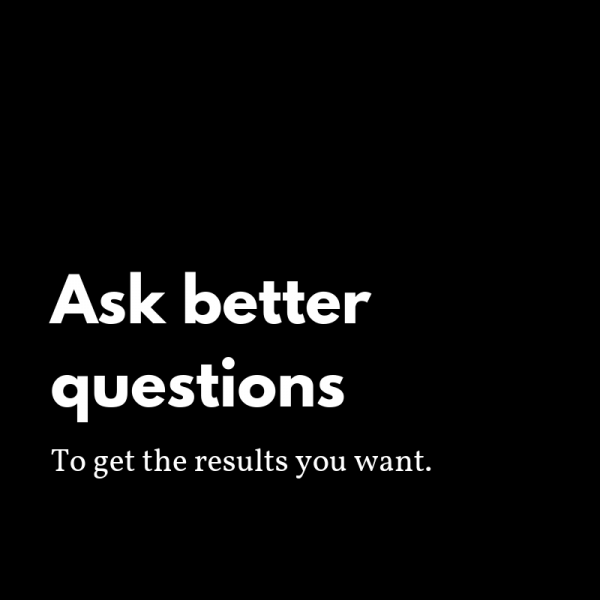Things that make me want to scream:
- Bending my fingernail backwards
- Having a customer ask me for advice, then attempt to tell me how I should fix the problem.
This week, yet again, I had a customer ask me to look at a technical problem. She’s paying my hourly consulting fee, mind you, because I’m on site for a consult. She explains the problem and the proceeds to Google for an answer (using the very worst Google syntax ever), with the onsite tech guy sitting next to her pointing at results. I lean against the credenza in her office, meanwhile, waiting for them to give up and ask the expert they’re paying.
There are two parts of the problem: 1) Email has gotten mangled coming into her inbox and needs to be restored. 2) We need to keep this from happening in the future. We quickly discover the solution to #2 and fix it. The fix for #1 is a longer, more tedious procedure. We’ve exhausted the rabbit hole of Google results, and yet they just. keep. searching. In desperation and confusion I ask the question that seems obvious, but no one has asked yet:
What is the best possible outcome you could have?
She looks at me as if I have a third eye, or a horn sticking out of my forehead. After a minute it’s obvious she doesn’t have an answer to my question. Does she want the email restored? Does she want to step through the tedious procedure to fix the mangled emails? Does she want to skip it altogether, because it’s only a handful of emails? She’s had her head buried so deeply in the situation that she’s never stopped to consider what she wants to happen.
What is the Best Possible Outcome?
This is one of those questions as a consultant and troubleshooter that I have to ask over and over, because many people don’t really know what they want, or have lost sight of what they want, or keep changing their minds. They keep encountering the same situations over and over because they haven’t identified where they want to go.
Obviously, the question extends to the personal:
- What is the best possible outcome of this relationship?
- What is the best possible outcome of buying this car?
- What is the best possible outcome of this conflict with my kid?
- What is the best possible outcome of taking this job?
Take, for example, “What is the best possible outcome of this relationship?” Because you don’t know what you want, you can’t identify what the result of being in a life-long relationship with someone will be. Do you want to have kids? What kind of values do you want those kids to have? Is your wife going to demand a certain standard of living? Will she remain faithful? Will you remain faithful to her? Once you identify what you want you know where to start looking for a wife. And, just as important, you know when to cut and run. This question will keep you from wasting time on people or things that aren’t taking you in the direction you want to go.
“What is the best possible outcome of this conflict with my kid?” It may be that you and your son or daughter won’t see eye to eye, but that the best possible outcome is that you model disagreeing well, and model grace in accepting a different opinion. Not knowing the best possible outcome will see you on the defensive, insisting on your way, even when it really doesn’t matter. The result being a broken, resentful relationship with your son.
- What is the best possible outcome of talking to my ex on Snapchat?
- What is the best possible outcome of tutoring a kid?
- What is the best possible outcome of eating healthier?
Conclusion
This question, along with “What is the wise thing for me to do?“, can help you weed out the helpful from the destructive. The wise from the foolish. The wasteful from the resourceful. Take some time to sit down and identify some areas in your life that are vague right now. Are you looking at a major financial decision? Are you in a relationship that doesn’t have an end-game. What will your career look like 20 years from now? Have you set any longevity goals? Pick one and ask the question, “What is the best possible outcome?” and begin to shape your decision(s) based on what you see.
